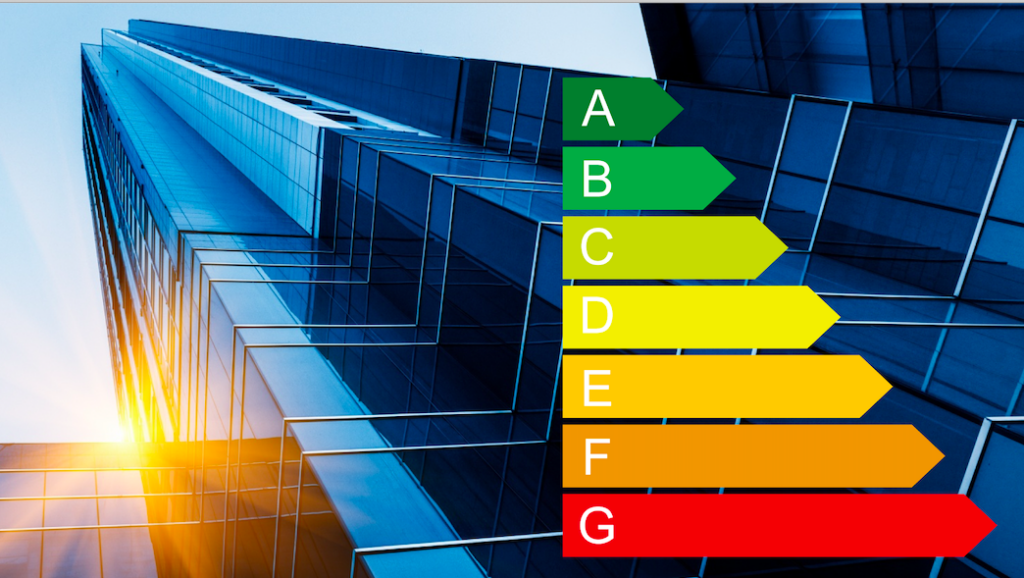There are less than 9 months to go before public sector buildings greater than 1 000m² and private sector buildings greater than 2 000m² must publicly display their Energy Performance Certificates (EPCs). The GBCSA Academy continues to share insight and knowledge to enable the building industry to reach its goals.
GBCSA Academy has developed an interactive series of workshops focused on providing well-rounded information on EPCs.
What are EPCs?
An EPC provides a snapshot of a building’s yearly operational energy performance by measuring energy consumption per square metre.
Made effective in 2020, the EPC Regulations state that buildings will need to display their EPC by December 2022. This will show the efficiency or inefficiency of the building, using a colour-coded score from A-G, similar to the energy rating found on electrical appliances.
Knowing the energy performance of a building empowers potential buyers and tenants to make informed decisions. Once inefficiencies are identified, improvements can be made by building owners. It is hoped that this will be a great boost for energy efficiency in South Africa, since the first step toward lowering energy consumption is knowing energy consumption.
EPCs in South Africa
To obtain an EPC, a building owner needs to gather certain building information – the electricity consumption data for a year, the net floor area, information on the areas excluded, vacancy rates – and contract a South African National Accreditation System (SANAS) accredited inspection body (IB) to audit the information.
The GBCSA Academy EPC Insights Training Workshops provide information on what companies are required to do to become a SANAS accredited inspection body. A list of accredited IBs can be found on the SANEDI website.
The IB submits the energy performance value to the South African National Energy Development Institute (SANEDI), which inputs it into the National Building Energy Performance Register. A unique number for the EPC is generated and sent to the SANAS accredited IB, who then issues the EPC to the client for display.
The first building to ever achieve it’s EPC in South Africa was Stellenbosch University Admin B building. The University had been collecting data for several years and the data verification was completed by Bluedust Engineering Solutions. This information was handed to Energy Management and Validation Service, which is accredited by SANEDI to issue EPCs.
The National Building Energy Performance Register (which is set to be launched in 2022) will assist with future benchmarking of building energy consumption and track progress toward achievement of the targets set out in future EPC regulations.
Getting ready for EPCs
Join the GBCSA Academy’s Insights Training Workshop 2: EPC’s : Understanding the EPC Inspection Body Accreditation Process on 17 May 2022, which supports organisations wanting to capacitate staff members to apply to SANAS for accreditation as an EPC Inspection Body (Ref : SANS 17020) and in the auditing of building energy data.
This interactive online workshop, facilitated by GBCSA CEO Lisa Reynolds, features specialist guest speakers Linda Grundlingh and Eben Smit. The workshop will focus on understanding the energy performance of your building and comprehensively overview the EPC Inspection Body Accreditation Process.
A pre-requisite for attending this course is having attended the EPC: Know your business Insight Training Workshop.
Please get in touch at [email protected] if you have any queries.



